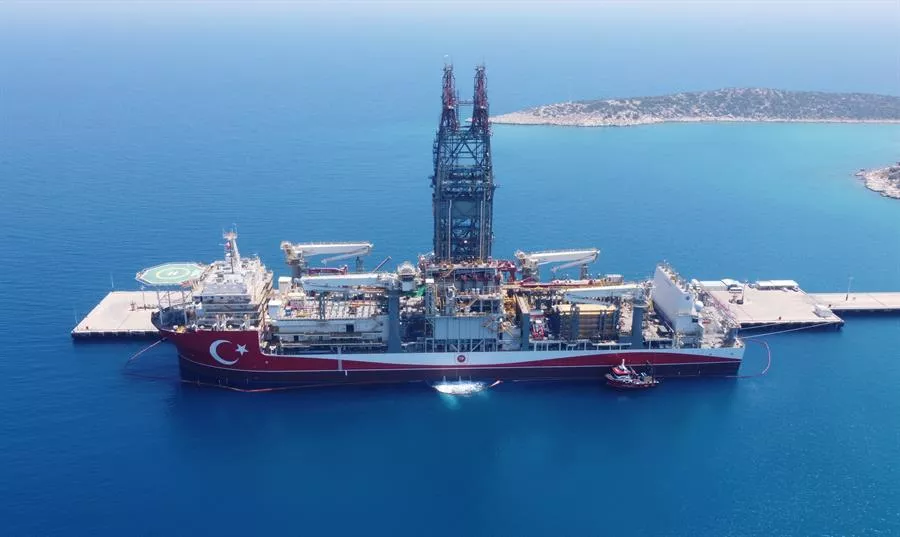Nicosia and Athens were relieved at Turkey President Recep Tayyip Erdogan’s decision to send its largest drilling vessel, the Abdulhamid Han, to Turkish waters off the island’s northern coast, 55 kilometres from Antalya.
According to Turkish media, the drilling rig will be located in non-disputed waters, some 45 kilometres from the area claimed by the breakaway state in the Turkish-occupied north.
The Turkish authorities have issued a navigational telex (navtex) for the area until 22 October, with analysts concerned over the possibility of the drillship moving towards or even entering Cyprus Exclusive Economic Zone.
While the area initially designated for the ship is not disputed, Erdogan said the Abdulhamid Han would continue to search for gas until it found it, potentially leading it to areas claimed by Cyprus.
Turkey and Cyprus have been embroiled in a dispute over maritime borders, and the EU has imposed sanctions on Ankara over drilling off the island.
“Our exploration and drilling in the Mediterranean are within our own sovereign dominion,” Erdogan said at the inauguration ceremony.
“Neither the puppets nor the ones who hold their strings will be able to prevent us from getting our rights in the Mediterranean,” he declared, in an apparent reference to Greece, Cyprus and Western allies.
“We don’t need to seek permission or ratification from anyone…We will take what is ours.”
Least risky scenario
President Erdogan’s choice to send his newest floating drilling rig to an area within Turkey’s maritime jurisdiction has certainly put to rest concerns over tensions between Greece, Turkey and Cyprus heating up.
It was the least dangerous scenario of the ones circulating since Ankara, after a 2-year hiatus, decided to resend a drilling rig to the Mediterranean.
Political analysts feared the ship could head for Cyprus’ gas fields as Ankara disputes the Republic’s right to exploit its EEZ.
Abdulhamid Han is a state-of-the-art drilling vessel which costs close to $200 mln.
Their latest acquisition is the symbol of Turkey’s new vision in the energy sector and the first step of the “integrated business plan in the Eastern Mediterranean”.
The country’s other drillships — Fatih, Kanuni and Yavuz — operate in the Black Sea, where Turkey has discovered natural gas reserves.
All four ships are named after Ottoman sultans.
Turkey is almost entirely reliant on imports to meet its energy needs.
Rising global energy prices have hindered Erdogan’s government from reaching its goal of achieving a budget surplus.
Turkey imported around 45% of its natural gas last year from Russia.









